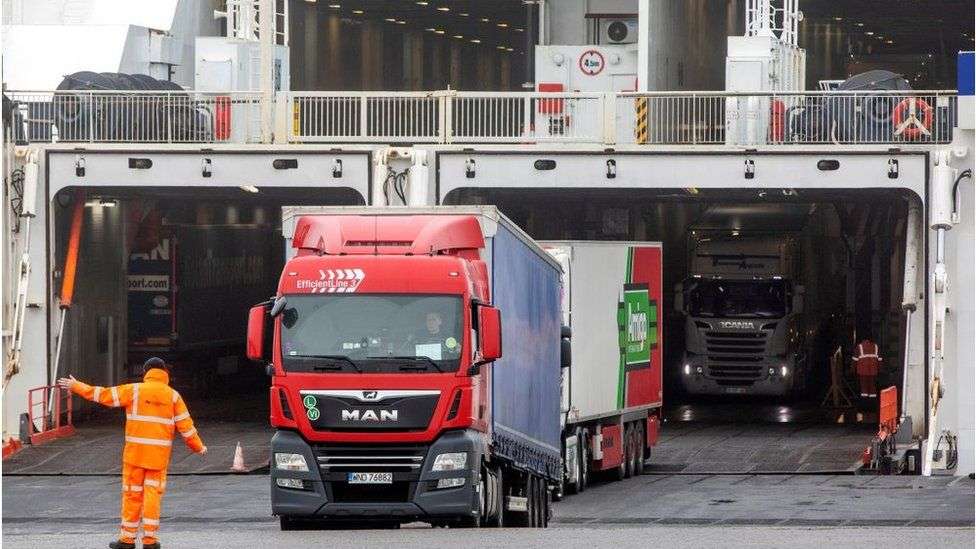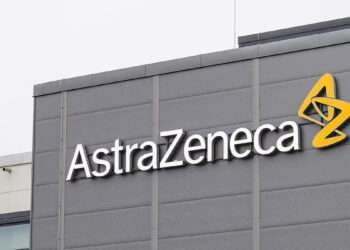UK firms are being hit by “increased costs, paperwork and border delays” as a result of Brexit, British Members of Parliament have said.
The report by Public Accounts Committee (PAC), parliament’s spending watchdog, said it “was clear” that leaving the EU was having an impact on UK trade volumes.
The PAC also warned that things could worsen this year as new import controls come in, although the government has assured that businesses will get “the support they need to trade effectively with Europe”.
PAC Chair, Meg Hillier said, “One of the great promises of Brexit was freeing British businesses to give them the headroom to maximise their productivity and contribution to the economy – even more desperately needed now on the long road to recovery from the pandemic.”
“Yet the only detectable impact so far is increased costs, paperwork and border delays.”
PAC Chair, Meg Hillier
The Public Accounts Committee admitted that it was hard to separate the impact of Brexit from the effects of Covid and wider global problems, it was “clear that EU exit has had an impact” on UK trade volumes.
The report comes on the appointment of Jacob Rees-Mogg as Minister for Brexit Opportunities as part of a cabinet reshuffle. The prominent Leave Campaigner will look at which EU rules may be scrapped now following the UK’s exit from the bloc.
In its PAC’s report, it showed concern about what will happen when passenger traffic across the UK border returns to normal levels as the pandemic subsides.
It also described government plans to create the most effective border in the world by 2025 as “optimistic, given where things stand today”.
An artisan cheesemaker based in Devon, Mary Quicke, said the committee’s findings tallied with her experiences.
“There are just all of these barriers to doing what used to be really, really simple which was agreeing to make a sale and then calling the haulier and off it went and you got paid.”
Mary Quicke – An artisan cheesemaker based in Devon
She says she hasn’t yet seen the new opportunities she hoped for after Brexit, adding that she worries that clients in the EU will stop taking her products if the problems linger.
“Of course, they want our cheese, but how long do you carry on doing something you want when it’s really tedious and costly and you get charged much more money?”
Mary Quicke – An artisan cheesemaker based in Devon
The PAC report blamed the suppression of trade volumes on Covid-19, and wider global pressures in supply chains since the UK left the EU customs union and single market.
But the report adds that leaving the EU also had an impact by increasing the bureaucratic burden on businesses.
The report says there is potential for the further disruption this year as more people start travelling again, and passenger volumes will increase at key ports like Dover.

New border systems are yet to be tested with traffic back at what were normal levels before the pandemic struck.
There is also a significant risk of more delays later this year when the EU introduces biometric passport controls under its new Entry and Exit System.
The Cabinet Office told the PAC that discussions are underway with French officials about how this might work in practice at busy ports like Dover, where the report said: “it is important that checks that apply to HGV drivers do not delay the throughput of lorries”.
Checks on food
Another big test identified by the committee will be the phased introduction of controls on imports into the UK, which began on January 1, 2022.
Physical checks on the import of food products are due to begin in July 2022, and the British Port Authority told the PAC it needs greater clarity about the precise arrangements, including the percentage of products that will be checked.
The MPs also raised concern about the potential for smuggling before new border infrastructure is completed close to Dover port.
Lorries arriving at the port will have to travel 60 miles to Ebbsfleet, for physical consignment checks by customs officers. This will increase the risk, the committee warned, regarding goods being offloaded on the way.
HM Revenue and Customs have said it will look at what surveillance might be necessary to manage that risk.
READ ALSO: Republic Bank Ghana, a Good Corporate Citizen- Osafo-Maafo





















